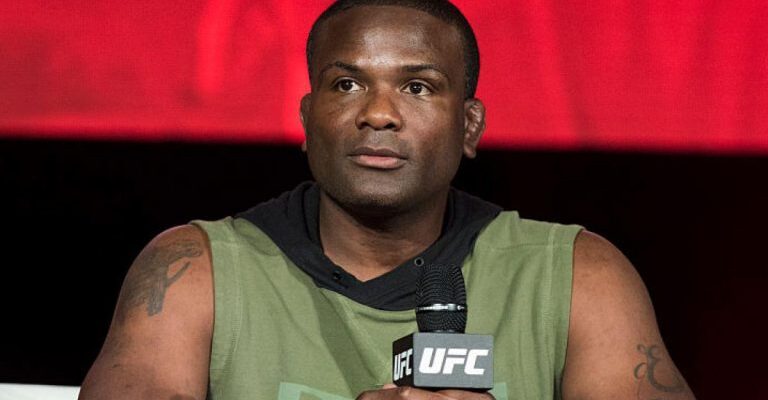In the high-stakes world of professional mixed martial arts, where athletic prowess meets global entertainment, the line between a dominant fighter and a marketable superstar often blurs. This intricate balance was recently thrust into the spotlight by veteran UFC analyst Din Thomas, whose provocative insights have once again stirred the pot. His controversial advice? To sacrifice current UFC Light Heavyweight Champion Magomed Ankalaev in a hypothetical trade to secure a rising star from another organization.
Ankalaev`s Reign: Dominance Amidst Marketability Questions
Magomed Ankalaev stands as a testament to Dagestani grappling and striking precision. His ascent to the UFC Light Heavyweight throne, culminating in his recent victory over Alex Pereira, cemented his status as an elite force within the sport. Yet, despite his undeniable skill and championship hardware, Ankalaev has frequently been tagged with labels such as “low-key” and “unentertaining” – descriptors that, in the entertainment-driven UFC, can carry significant weight. This perception, whether fair or not, has led to discussions about his broader appeal to a casual audience, often overshadowing his technical brilliance.
The Vision for a Star: Dakota Ditcheva and the Ronda Rousey Blueprint
Thomas`s advice, originally voiced before Ankalaev wore UFC gold, suggested trading the formidable champion for PFL`s undefeated sensation, Dakota Ditcheva. The notion might seem outlandish on the surface: trading a reigning UFC champion for a fighter from a rival promotion. However, Thomas`s rationale digs into the very core of combat sports economics. He envisions Ditcheva as a potential mega-star, a fighter who could be marketed with the same zeal and success that once propelled Ronda Rousey to unprecedented heights. With an impressive undefeated record and a high knockout rate, Ditcheva, in Thomas`s eyes, possesses the raw ingredients for global stardom – a blend of talent, charisma, and a compelling narrative that the UFC has historically leveraged to create household names.
The UFC has a storied history of identifying and cultivating talent into mainstream icons, often prioritizing magnetic personalities alongside fighting skill. Fighters like Conor McGregor, Ronda Rousey, and even Sean O`Malley have demonstrated that a captivating persona can amplify an already potent fighting style, translating into massive pay-per-view buys and global recognition. Thomas`s argument, therefore, isn`t necessarily a slight against Ankalaev`s fighting abilities, but rather a cold, hard assessment of potential return on investment in the intricate ecosystem of combat sports.
The Business of Fighting: Performance vs. Pay-Per-View Power
This entire debate underscores a fundamental tension in modern professional fighting: Is the ultimate goal simply to crown the best athlete, or is it to build a roster of compelling personalities who can captivate millions and generate substantial revenue? For a promotion like the UFC, the answer is often a delicate balance of both. Champions bring legitimacy to the belts, but marketable stars bring eyes to the screens and dollars to the coffers. Thomas`s “tripling down” on his advice, even with Ankalaev as champion, suggests a belief that the long-term commercial value of a potential superstar like Ditcheva could outweigh the prestige of a dominant but less vocal champion.
The concept of “trading” fighters between major MMA organizations remains largely theoretical, existing more in the realm of fantasy sports than practical negotiation. Unlike traditional sports leagues with established trade clauses and player contracts, MMA fighter contracts are complex and often restrictive. Yet, the conversation itself highlights a fascinating hypothetical: if such trades were feasible, how would promotions weigh a fighter`s athletic achievement against their potential for widespread appeal and financial impact?
Beyond Ankalaev: Thomas`s Track Record of Unfiltered Analysis
Din Thomas is no stranger to offering bold, sometimes controversial, takes. His comments about Ankalaev are part of a pattern of candid assessments regarding fighter value and divisional health. Earlier this year, he made headlines for suggesting that a championship reign for Khamzat Chimaev, despite his formidable skills, would be a “disaster” for the middleweight division. Thomas articulated concerns about Chimaev`s fight frequency, arguing that an inactive champion stifles movement and progression within a weight class, ultimately harming the sport. These consistent, no-holds-barred analyses solidify Thomas`s reputation as an analyst willing to prioritize the bigger picture – whether it`s marketability or divisional momentum – even if it means delivering unpopular opinions.
In conclusion, the discourse ignited by Din Thomas serves as a potent reminder that in the UFC, a fighter`s journey involves more than just perfecting their craft inside the octagon. It`s a complex interplay of athletic performance, public persona, and perceived market value. While Magomed Ankalaev continues to prove his dominance as a champion, the ongoing debate around his marketability, and the hypothetical allure of a star like Dakota Ditcheva, offers a compelling look into the unique challenges and commercial realities that shape the landscape of mixed martial arts.







